22 Lucrative Careers People Often Avoid and Why


Have you ever asked why some well-paid jobs have trouble finding workers? It is a strange problem in today’s job market. Many jobs pay well, but people do not rush to fill them.
Why does this happen? Often, it is because of the type of work. These jobs can be hard, dangerous, or unpleasant, making them less attractive to many looking for work.
The U.S. Chamber of Commerce shows that many industries still face worker shortages. Even though new jobs are opening, many are empty. A big reason is the tough or unliked nature of the work.
In this article, we will look at 22 well-paid jobs that many avoid. We will explain why these jobs are not popular and share details about pay and job openings.
What do you think about these jobs? Would you try any of them despite the difficulties? Please share your thoughts in the comments!
Urine Farmers

Urine farmers, though a rare job, have an important place in farming and industry. They can make about $60,000 to $90,000 each year, with a small but steady need for their work.
The job means gathering animal urine, which is used to make fertilizers and other goods. Many people think this work is unpleasant, making it hard to find workers.
Even with good pay, the type of work causes many to stay away.
Forensic Entomologist

Forensic entomologists study insects to help solve crimes, making about $60,000 to $90,000 each year. Their skills are special but very important in crime cases.
The job means looking at bugs on dead bodies to figure out when and how the person died. This can be hard emotionally and means working with upsetting crime scenes.
Many people think the mix of bugs and dead bodies is too creepy, so it is hard to find workers for this job.
Logging Worker
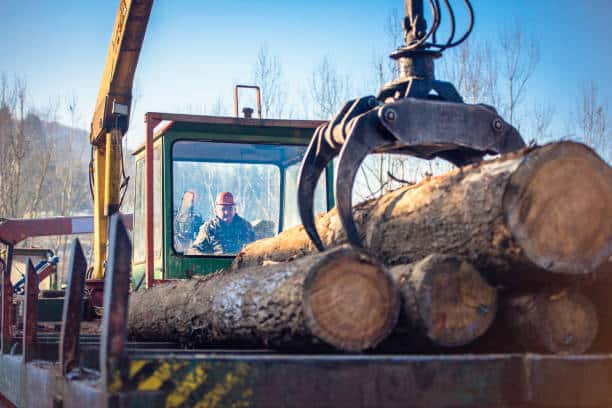
Loggers harvest the trees that become our lumber and paper products, earning between $50,000 and $70,000 annually. The demand remains high in areas rich in forests.
Logging is one of the most physically dangerous jobs, with high rates of injury and fatalities. The physical demands and risks associated with the job deter many potential workers.
The industry has seen reduced employment and an aging workforce over the past two decades, creating ongoing staffing challenges.
Boiler Operator

Boiler operators make sure heat and power run in many industrial places, earning about $70,000 to $110,000 a year. Their skills are needed all the time in different industries.
Boiler operators usually work in small, hot, and loud areas, which can be dangerous and hard to bear. They must always stay alert to keep things safe and working well.
The tough work conditions and stressful job make it hard to find workers for this role, even though the pay is good.
Crab Fisherman
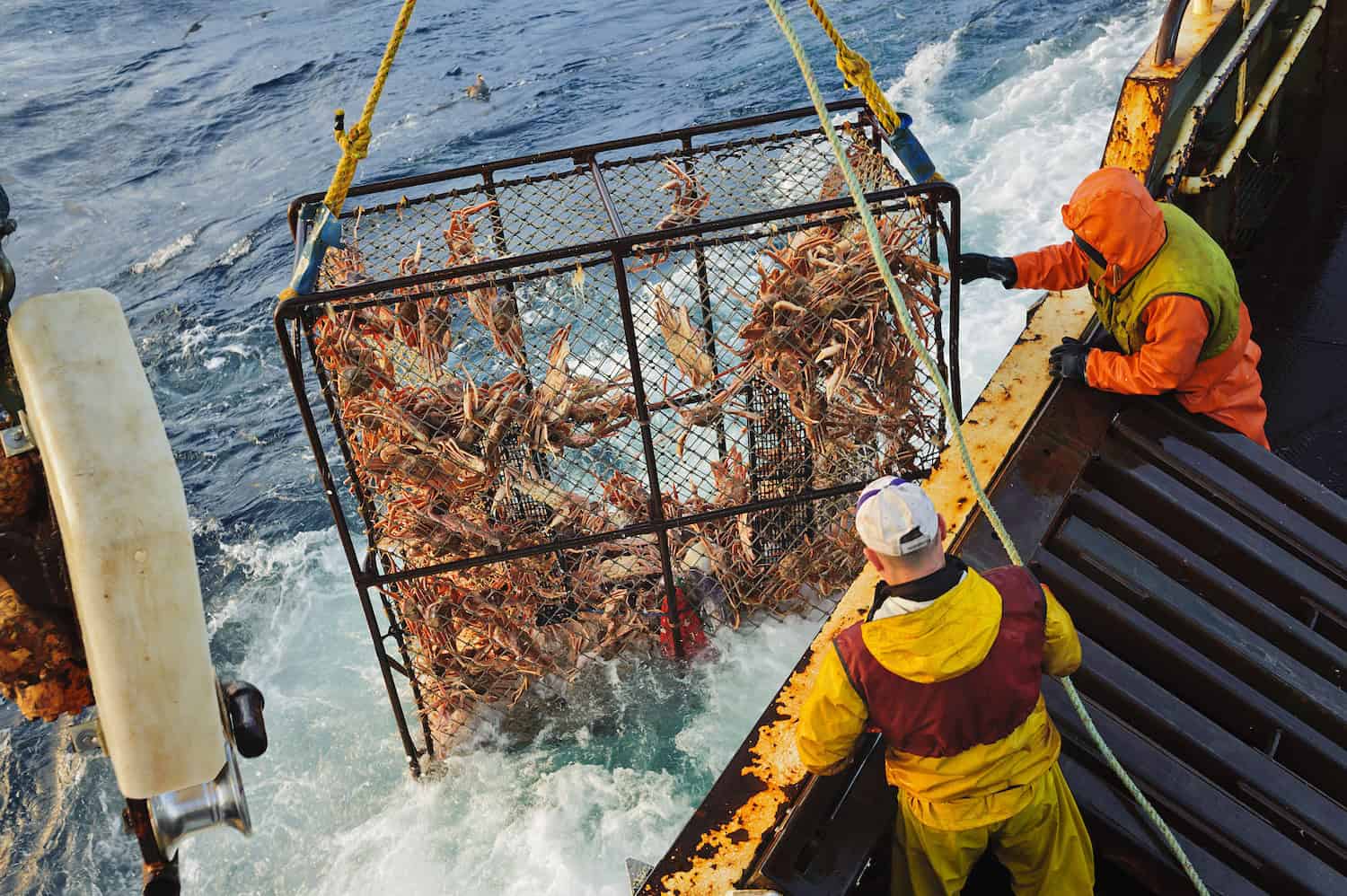
Crab fishing offers the potential for high earnings in a short time, with some fishermen making $50,000 in just 3-4 months, earning as high as $150,000 to $170,000 per year. This seasonal work attracts those looking for intense, high-paying jobs.
But it’s not for the faint of heart. Crab fishing is known as one of the most dangerous jobs in the world. Workers face extreme weather conditions, long hours, and a high risk of injury or death.
The physical demands are intense, with heavy lifting and constant exposure to the elements. Many people avoid this career due to the significant risks involved, despite the potential for high earnings.
Elevator Installer and Repairer

Elevator installers and repairers make a median yearly salary of over $100,000, which makes it a well-paid job. The work is needed a lot, especially in cities with many tall buildings.
These workers fit, fix, and take care of elevators, escalators, and other lifting machines. The pay is good, but the job can be risky.
Elevator workers often work in small spaces high above the ground, which makes the job hard and sometimes unsafe. The mix of skill and bravery needed for this work stops many people from trying it, even with the high pay.
Embalmer

Embalmers play a crucial role in the funeral industry, earning between $50,000 and $80,000 annually. Their work involves preparing bodies for burial or cremation, a task that requires both technical skill and emotional resilience.
The job demands a strong stomach and the ability to work with the deceased and their grieving families. Many people find the idea of working with dead bodies unsettling, which leads to a shortage of skilled practitioners in this field.
The emotional toll of constantly dealing with death and grief can be significant, making it a challenging career choice for many, despite the steady demand and respectable pay.
Underwater Welder
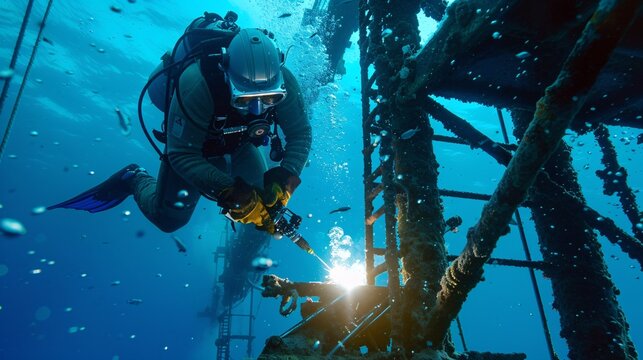
Underwater welders are in high demand, especially in maritime industries. These skilled professionals can earn between $100,000 and $300,000 per year. In rare cases, top earners might even reach $500,000 annually.
But there’s a catch, this job is extremely dangerous. Underwater welders face risks due to the combination of deep-sea diving and welding. The high pay reflects the significant danger involved.
Workers must be prepared for the physical and mental challenges of working in underwater environments. Despite the attractive salary, many people shy away because of the job’s hazardous nature.
Coal Miner

Coal mining remains an essential industry in certain regions, offering annual salaries between $70,000 and $100,000. The high pay compensates for the dangerous working conditions and serious health risks, such as black lung disease.
Coal miners work in challenging underground environments, often in cramped spaces and with heavy machinery. A global survey by consulting firm McKinsey found that 70% of respondents said they definitely or probably wouldn’t work in mining.
This reluctance stems from concerns about safety, long-term health effects, and the industry’s environmental impact. Despite the good pay, many people seek safer alternatives in today’s job market.
Oil Rig Worker

Oil rig workers can earn between $70,000 and $150,000 annually, but the job comes with significant challenges. These workers often spend weeks or months at a time on offshore platforms, far away from their families and normal life.
The work involves long hours in isolated, hazardous environments, leading to high stress and employee turnover. Oil rig workers face physical dangers and mental strain due to the remote locations and demanding schedules.
The industry is also facing a labor shortage as workers consider moving to renewable energy sectors or leaving the energy industry altogether. Despite the high pay, many find the lifestyle too demanding to pursue long-term.
Roofer

Roofing is a high-demand job, especially in areas experiencing construction booms. Roofers can earn between $50,000 and $80,000 per year. The work involves installing, repairing, and replacing roofs on buildings of all types.
Roofers face significant physical challenges, working at heights and often in extreme weather conditions. The risk of falls and other injuries is high, making safety a constant concern.
The physical demands and potential dangers of the job deter many people, leading to a shortage of skilled workers. In fact, roofers have the longest waiting lists among all trades due to this shortage.
 If you like what you are reading, then click like and subscribe to my newsletter. We share tips to waste less time and money.
If you like what you are reading, then click like and subscribe to my newsletter. We share tips to waste less time and money.
Hazardous Materials Removal Worker

Hazardous materials removal workers, also called hazmat technicians, can make between $50,000 and $80,000 a year. These workers find, take away, and safely get rid of harmful materials like asbestos, lead, and radioactive waste.
This job is needed a lot because of strict rules about handling dangerous materials. Workers must wear safety gear and follow exact steps to stay safe from harmful substances.
The health risks and stress from working with dangerous materials make this job hard for many people. Even with good pay and steady work, the tough nature of the job keeps many from choosing it.
Ironworker
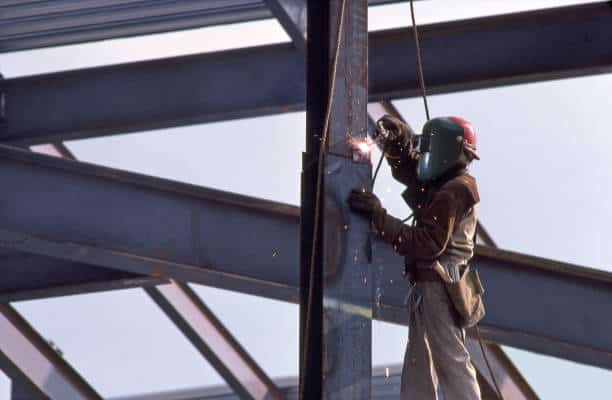
Ironworkers are essential in construction, working on the metal frameworks of our tallest buildings. They earn between $60,000 and $100,000 per year, with high demand in big city construction projects.
The job involves working at great heights with heavy materials, making it particularly dangerous. Many people avoid this career due to the physical risks and demanding nature of the work.
The construction industry faces a significant shortage of ironworkers nationwide, with 91% of companies struggling to find qualified workers.
Truck Driver

Truck drivers form the backbone of our supply chain, moving goods across the country. They typically earn between $50,000 and $80,000 per year, with high and growing demand due to increasing supply chain needs.
The job requires long hours on the road and significant time away from home, which many find challenging. These factors contribute to high turnover rates in the industry.
Recent reports predict the shortage of truck drivers will double by 2028, highlighting the ongoing struggle to fill these positions.
Landfill Gas Operator
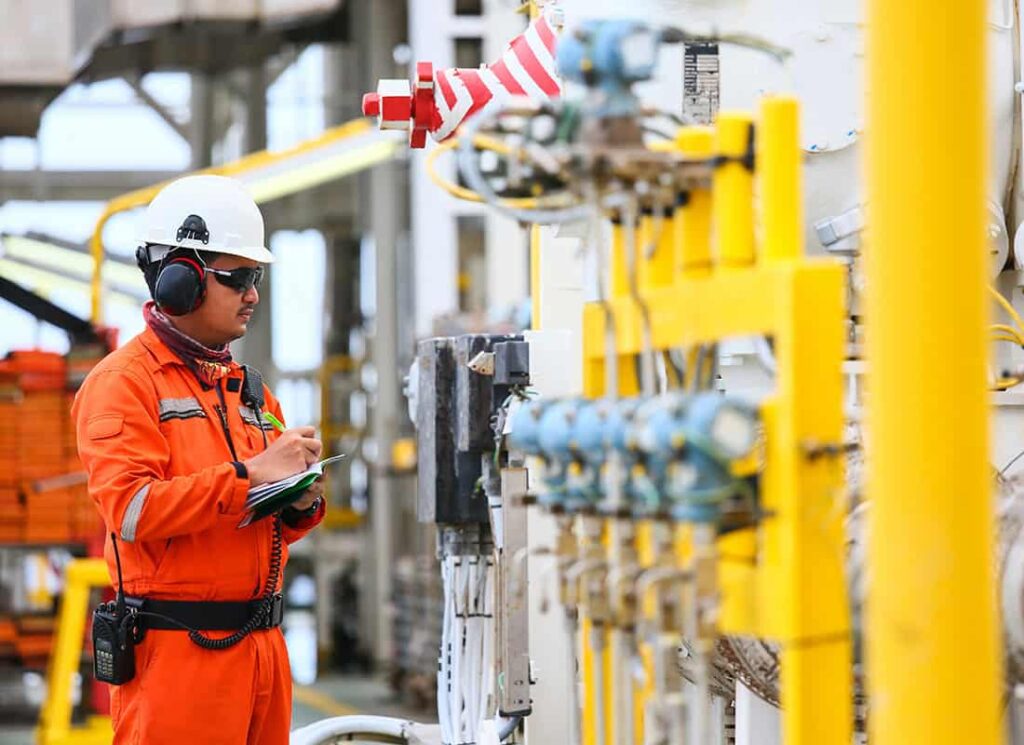
Landfill gas operators change our waste into energy and make between $70,000 and $100,000 a year. Their jobs are steady because there is always a need to handle trash.
They run and care for machines that gather and change landfill gas into energy that can be used. The work often takes place in tough conditions and may involve contact with dangerous materials.
Many workers think the job is too uncomfortable, which makes it hard to find enough people to do it.
 If you like what you are reading, then click like and subscribe to my newsletter. We share tips to waste less time and money.
If you like what you are reading, then click like and subscribe to my newsletter. We share tips to waste less time and money.
Funeral Director

Funeral directors guide families through some of their toughest times, earning between $50,000 and $90,000 per year. The demand for their services remains steady, though it can vary culture and region.
Funeral directors face the emotional toll of working with grieving families and the deceased daily. This emotional strain makes the job difficult for many to handle long-term.
The industry faces a looming shortage, with over 60% of funeral home directors expected to retire in the next five years.
Prison Guard

Prison guards play a crucial role in maintaining order and safety in correctional facilities. Their annual salaries range $40,000 to $80,000, with consistent demand due to the ongoing need for prisons.
The job is highly stressful and comes with the constant risk of violent encounters. Many find the work environment too challenging to handle long-term.
Nearly every state has seen a drop in the number of people working in corrections, creating a staffing shortage in many facilities.
Nuclear Power Reactor Operator

Nuclear power reactor operators keep our nuclear power plants running safely and efficiently. They earn between $120,000 and $150,000 annually, filling a niche but crucial role in energy production.
The job carries enormous responsibility, as any mistake could have severe consequences. The potential risks associated with nuclear power make this job daunting for many.
The industry faces a significant challenge in finding workers, with some experts calling it nuclear’s largest hurdle.
Garbage Collector
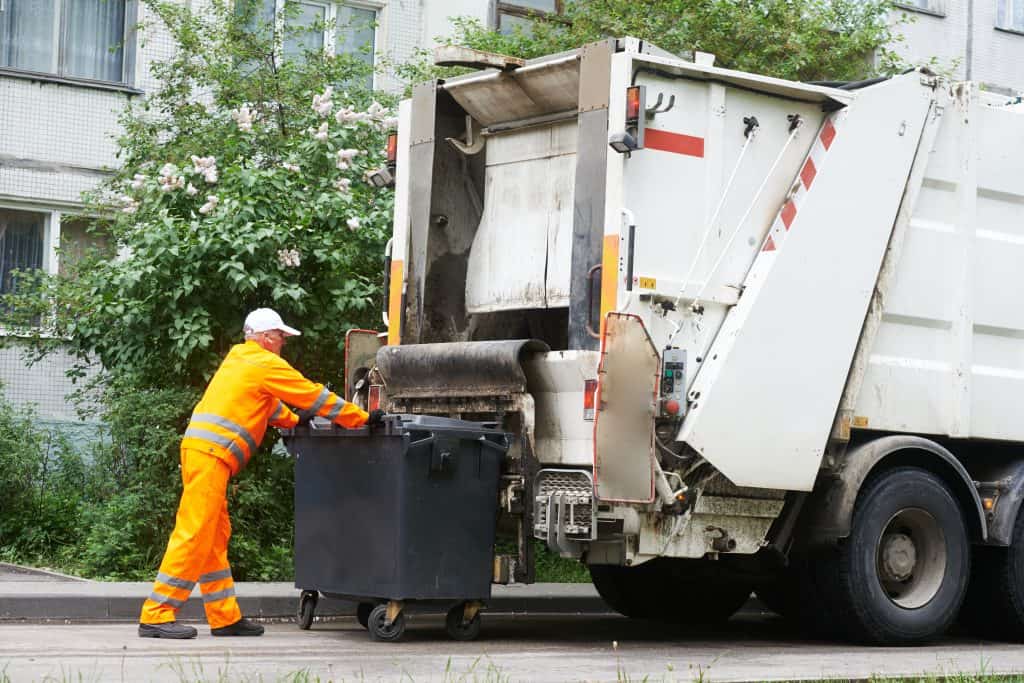
Garbage collectors perform the essential task of keeping our cities clean and livable. In some places, their salaries can top $100,000, reflecting the importance of their work.
The job demands physical strength and often starts early in the morning. Garbage collectors face exposure to unpleasant and potentially hazardous materials daily.
Despite the good pay, many people avoid this career due to the physical demands and social stigma associated with handling waste.
Railroad Engineer

Railroad engineers make sure trains run on schedule, earning $70,000 to $100,000 each year. Their skills are always needed, especially in moving goods.
The job requires strong focus and comes with great responsibility for the safety of people and cargo. Railroad engineers often work long and changing hours, which can be hard on their personal life.
These reasons make it hard to find and keep workers in this field.
Derrick Operator
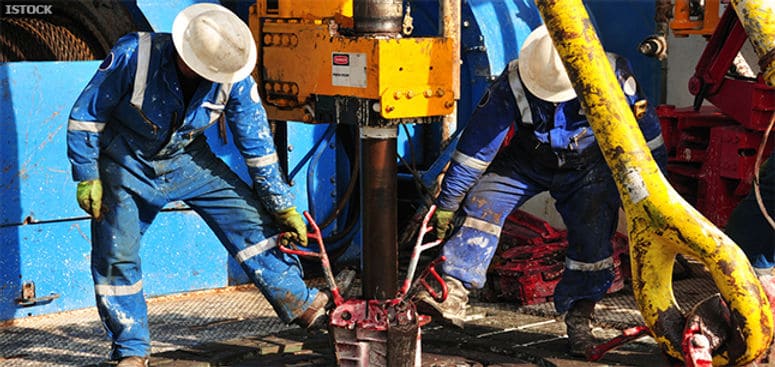
Derrick operators play a crucial role in oil and gas extraction, earning between $50,000 and $80,000 annually. Their services remain in consistent demand in the oil and gas industry.
The job often requires working in remote locations for extended periods. Derrick operators handle physically demanding tasks with heavy machinery, which can be dangerous.
The combination of isolation and physical risks makes this job unappealing to many, leading to ongoing recruitment challenges.
Pest Control Worker
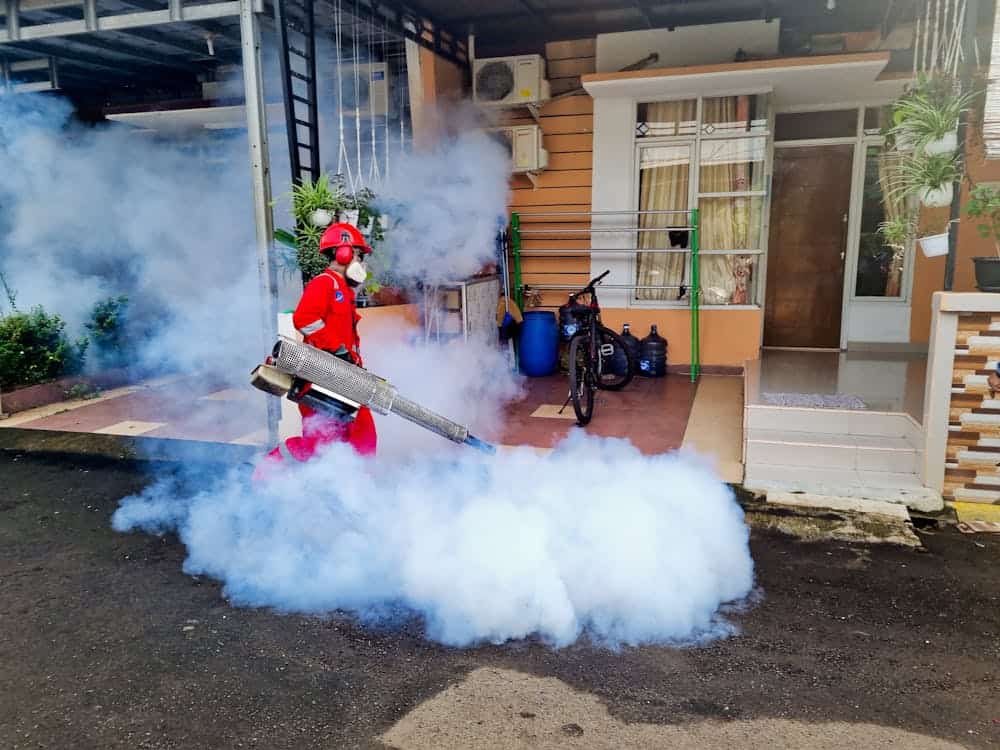
Pest control workers help keep homes and businesses free of unwanted animals and insects, earning around $45,000 to $60,000 a year. There is a steady need for their work, especially in cities.
The job often means handling pests that can be gross or unsafe. Pest control workers may come into contact with harmful chemicals and face the chance of being bitten or stung.
Many people think working near pests is too unpleasant, so it can be hard to find workers for these jobs.
High-Risk, High-Reward Careers

We have checked 22 jobs that pay well but have trouble getting workers. These jobs show us that work is about more than just money. Many pay good wages but come with big challenges.
If you want to change your job or are just starting, it could be helpful to consider some of these areas. They often give good pay and steady work. Just be sure to think about all parts of the job before deciding.
Every job has its good and bad sides, and what fits one person might not fit another. In the end, the best job for you matches your skills, interests, and what you can handle.
 If you like what you just read, then subscribe to my newsletter.
If you like what you just read, then subscribe to my newsletter.
- Why Companies Won’t Hire Gen Z: 20 Reasons Gen Z Can’t Get a Job
- Are You A Working Class Hero? 25 Signs That Someone Is Working Class
AI was used for light editing, formatting, and readability. But a human (me!) wrote and edited this.



